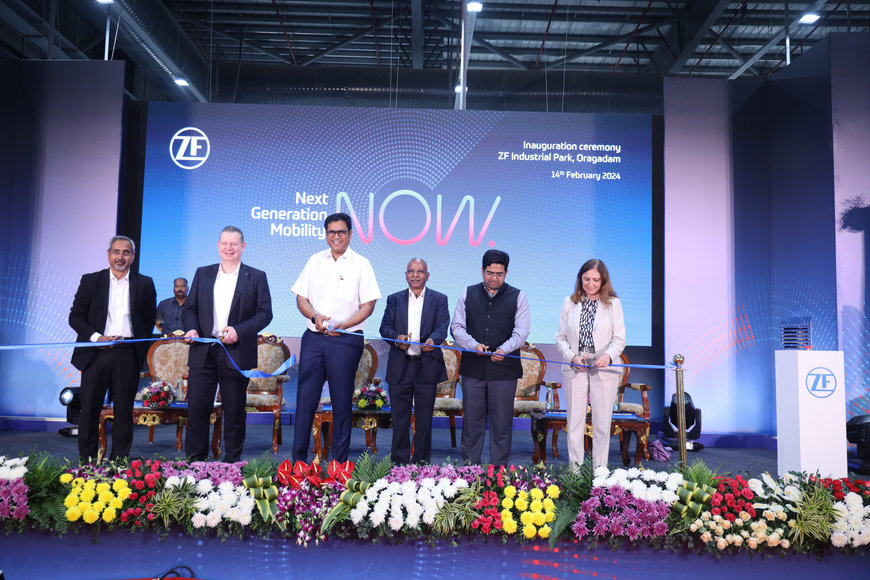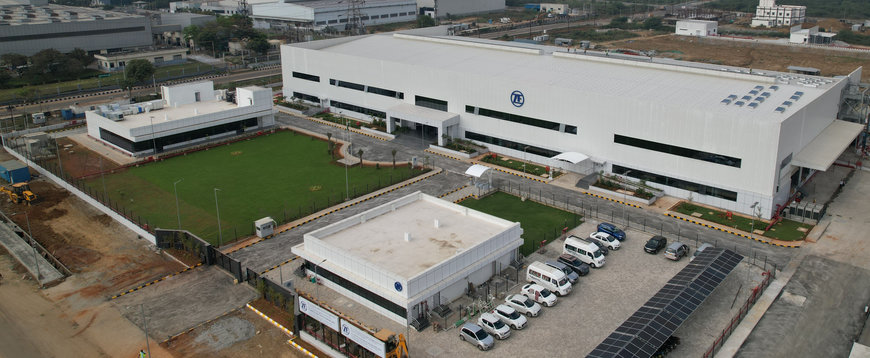www.industry-asia-pacific.com
05
'24
Written on Modified on
ZF COMMERCIAL VEHICLES SOLUTION DIVISION OPENS NEW PLANT IN INDIA
ZF opened a new location in Oragadam, India, for the production of electrical components for the Indian and Asian markets.

ZF's Commercial Vehicle Solutions (CVS) division is leveraging global growth opportunities brought by increasing trends towards decarbonizing commercial vehicles. On 14 February, the division will open a plant in Oragadam, India (Tamil Nadu Province), where electric components will also be produced for the Indian and Asian markets.
Decarbonization of commercial vehicle drives
Oragadam is the 19th ZF plant to be located on the Indian subcontinent, the tenth in the Tamil Nadu region. In addition to chassis components, electric components such as the air compressor for light and medium-duty commercial vehicles will soon be produced in the facility, which spans more than 7,000 square meters. The plant size will be expanded to 15,300 square meters in the second phase of construction. The total investment until 2032 will amount to EUR 200 million.
Growth and sustainability strategy
With the expansion of its global production capacity, the ZF CVS division, which is one of the largest suppliers of commercial vehicle systems technology worldwide, is following a long-term growth and sustainability strategy, meeting demand in important market regions locally ("local-for-local"). Expanding in this way also means ZF will be able to acquire orders at competitive costs - without customs duties and transport costs – such as in India. The German facilities also benefit from this strategy because they will supply more components for the systems being produced in ZF’s global locations.

Increasing production capacity in this way also brings sustainability benefits. In general, production in the country saves emissions that would otherwise be caused by transporting complete systems from remote locations. ZF also plans to operate the new location in India with 100 percent renewable energy. The facility has a solar plant that can generate up to 450 kWp, with further energy demand supplemented by solar and wind energy supplied under long-term contracts. The Oragadam plant is also equipped with a system to collect and reuse rainwater and is expected to be water-neutral by 2025.
www.zf.com

